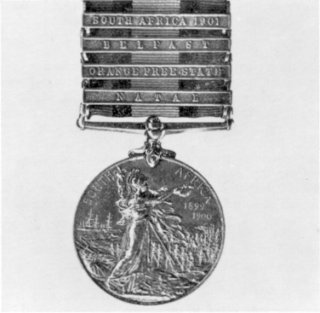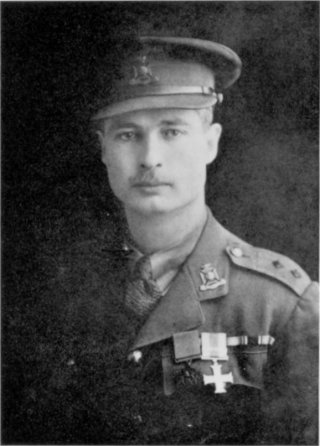

 The South African
The South African
The Museum is most fortunate in having recently purchased some rare and valuable medals. The first to be purchased was a Johannesburg Vrijwilliger Corps Medal. For details of this medal, see S.A. Military History Journal, Vol. 1, No. 4, page 2.
This lucky find was followed up with a Queen's South Africa Medal with bars Belfast, Orange Free State, Natal and South Africa 1901, awarded to Pte H. M. Percy, Lord Strathcona's Horse. The importance and rarity of this medal lie in the fact that it bears the embossed dates 1899-1900 on the reverse. As far as can be ascertained, only about 20-30 such medals were issued and local collectors and museums appear to know the whereabouts of only 13 of these. The dates indicate that the British anticipated that the war would end with or shortly after, the occupation of Pretoria and about 177,000 Queen's South Africa Medals, bearing the dates 1899-1900, were struck. When in 1901 the war was still in progress, the authorities ordered the embossed dates to be removed. A few of the medals with the dates so embossed were nevertheless awarded to members of Lord Strathcona's Horse. This Canadian Regiment had done exceptionally well in South Africa. It was on its way back to Canada by ship via Britain when Queen Victoria died on 22nd January, 1901. It arrived shortly after her death when King Edward, at one of his earliest official functions, presented 418 of its members with their Queen's medals.

Queen's South Africa Medal
dated 1899 - 1900

Lt.-Col. R. F. J. Hayward, VC, MC
Lt.-Col. Hayward was born at Swartkop, East Griqualand, on 17th June, 1891, and was educated at Hilton College, Natal. Thereafter, he attended a business college in Durban and in 1912 went to England to enter the Royal Veterinary College of Surgeons. A keen sportsman, Colonel Hayward played rugby for Natal and later for Middlesex.
On the outbreak of World War I, he joined up and was commissioned in the 6th Bn., The Wiltshire Regiment, later being transferred to the 1st Bn. He received the Military Cross for conspicuous gallantry and initiative at Staff Redoubt in 1916 and a Bar to his Military Cross during the Battle of Messines in 1916.
In the London Gazette, 26 April, 1918, Lieut. (A./Capt.) Hayward was awarded the Victoria Cross "For most conspicuous bravery in action."
Return to Journal Index OR Society's
Home page